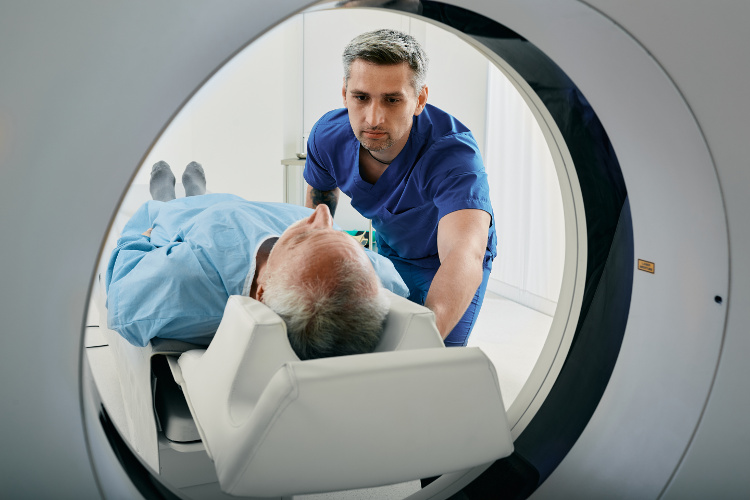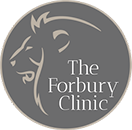Prostate MRI Scan
A non-invasive and accurate means of detecting prostate cancer at an early stage.
Prostate MRI
Prostate Magnetic Resonance Imaging (MRI) has revolutionised the way in which we diagnose and treat men with prostate cancer. A prostate MRI scan is now routinely used as a first-line investigation, creating detailed images of the prostate.
The specialist images are analysed by a consultant radiologist who can identify the exact size, and location of any abnormality. This enables biopsies of suspected cancer to be precisely targeted, enabling more accurate sampling, and an earlier cancer diagnosis.
Furthermore, by having a prostate MRI as a first-line investigation, men may avoid a prostate biopsy altogether.
The MRI scan takes approximately 40 minutes and is not painful.
The results of the scan will be quickly sent to your consultant urologist to plan your ongoing care.

Is an MRI scan more reliable than a PSA test?
Prostate cancer is the most common cancer in men, with 1 in 8 at risk of developing it. Men aged over 50, or who are black, or whose brother or father had it are at even greater risk.
At present men aged over 50 who are experiencing symptoms, can request a PSA test which detects the level of the protein prostate-specific antigen (PSA) in the blood. However, PSA testing is considered too unreliable and has been linked to overdiagnosis and overtreatment of low-risk cancer.
MRIs on the other hand are proving to be a more accurate means of diagnosis according to an exciting new study published in BMJ Oncology. Here scans from an MRI were found to be more reliable at diagnosing cancer than a PSA blood test alone.
The Reimagine study invited 303 men aged between 50 and 75 to have a screening MRI and a PSA test.
Of the participants, 48 (1 in 6) had an MRI that indicated prostate cancer despite having a median PSA density. From that group, 32 had lower PSA levels than the current screening benchmark of 3ng/ml, which is considered normal. Meaning they would have been falsely reassured they were cancer free and not have been referred for further investigation.
After NHS assessment, 29 men were diagnosed with cancer that required treatment, 15 of whom had serious cancer and a PSA of less than 3ng/ml.
Given how treatable prostate cancer is when caught early, this research highlights the important value of MRI screening in the timely diagnosis and treatment of prostate cancer.
Prostate MRI screening at The Urology Partnership
We offer fast access to prostate MRI screening at The Urology Partnership, Forbury Clinic in Reading (within easy reach of London on the Elizabeth Line).
Our private MRI screening package is available on a self-pay basis at £850.00 which includes the MRI scan and clinic appointment.
If you’re interested in booking our MRI screening package, please get in touch on 0118 920 7040 or make an appointment using the form below.
Next Steps
Get fast access to leading specialists for the swift diagnosis and treatment of urological conditions in a private clinic environment.
If you would like more information or wish to arrange a consultation with one of our specialist consultant urological surgeons then please either Call 0118 920 7040 or complete the form below.
Insured patients
Contact your GP and ask for a referral to the Urology Partnership.
All consultations, investigations and treatments are covered by major insurance companies (depending on policy).
Funding your own treatment
Self-funding initial consultation fee is £205. Follow up fees are £165.
Consultation charges are exclusive of any tests and other investigations that the consultant may wish to carry out.



